Havana, Cuba
Camila Cabello got it right …”Half of my heart is in Havana, ooh-na-na“
I felt like I had landed on the set of a 1950’s movie. The vibrant colors, the old cars, and if the buildings could talk, oh what stories they would tell. I wanted to tell my experience of Cuba to my friends and family at home. Open up your eyes and pull out that camera in your pocket, I’m sharing 7 tips on how to tell stories through photos.
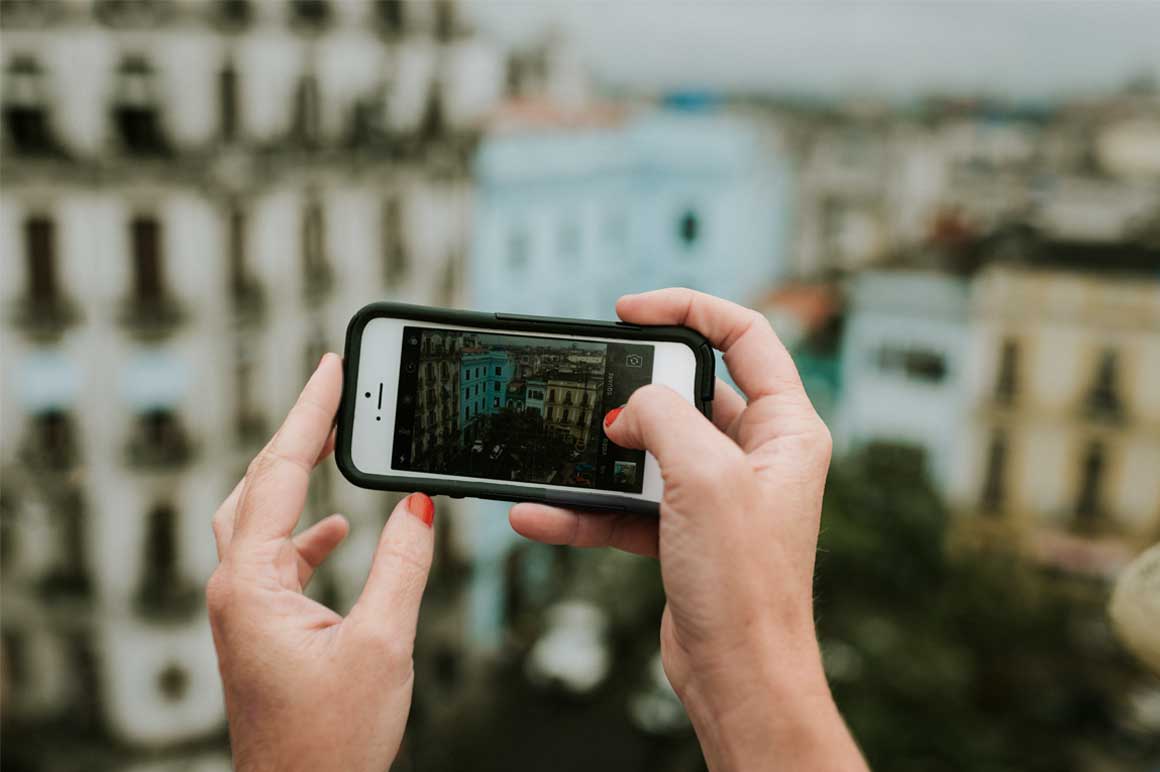
Tip 1
Use Objects to Convey Size
I traveled to Cuba with an amazing full time photographer, Angie Monson, lucky me! I stayed a few days longer by myself, but taking pictures is more enjoyable when you have a “model” or someone to boss around in the frame. Use a person or object to create a relationship between the elements in the scene. This gives the viewer a much better idea of the size of the objects in your image.
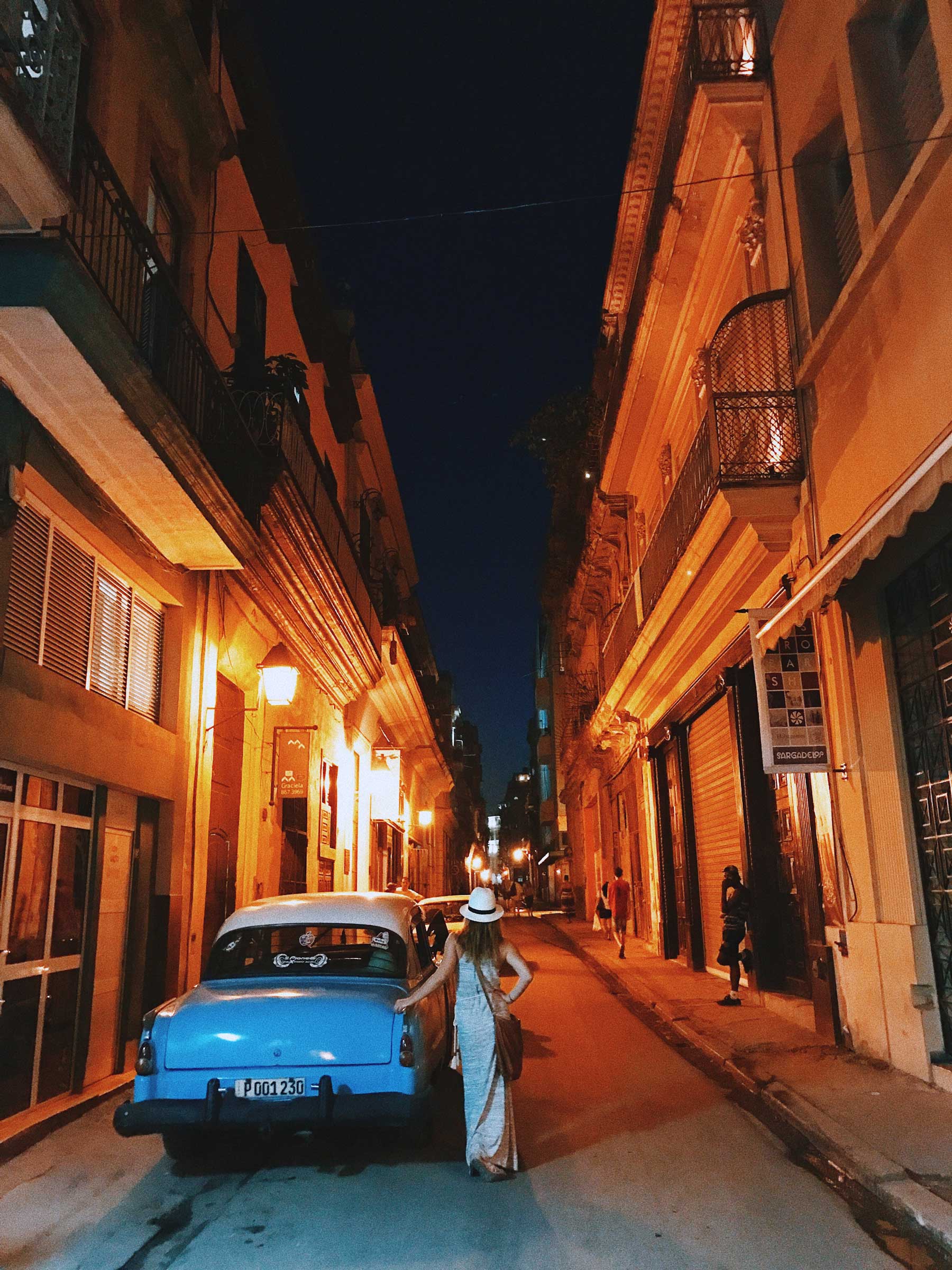
→ iPhone 7 Processed with VSCO c7 preset
Tip 2
Find a View
Cuba is full of exquisite buildings dating back hundreds of years. Go to the top of your hotel (wherever you may be) and see if you can capture a view from above.
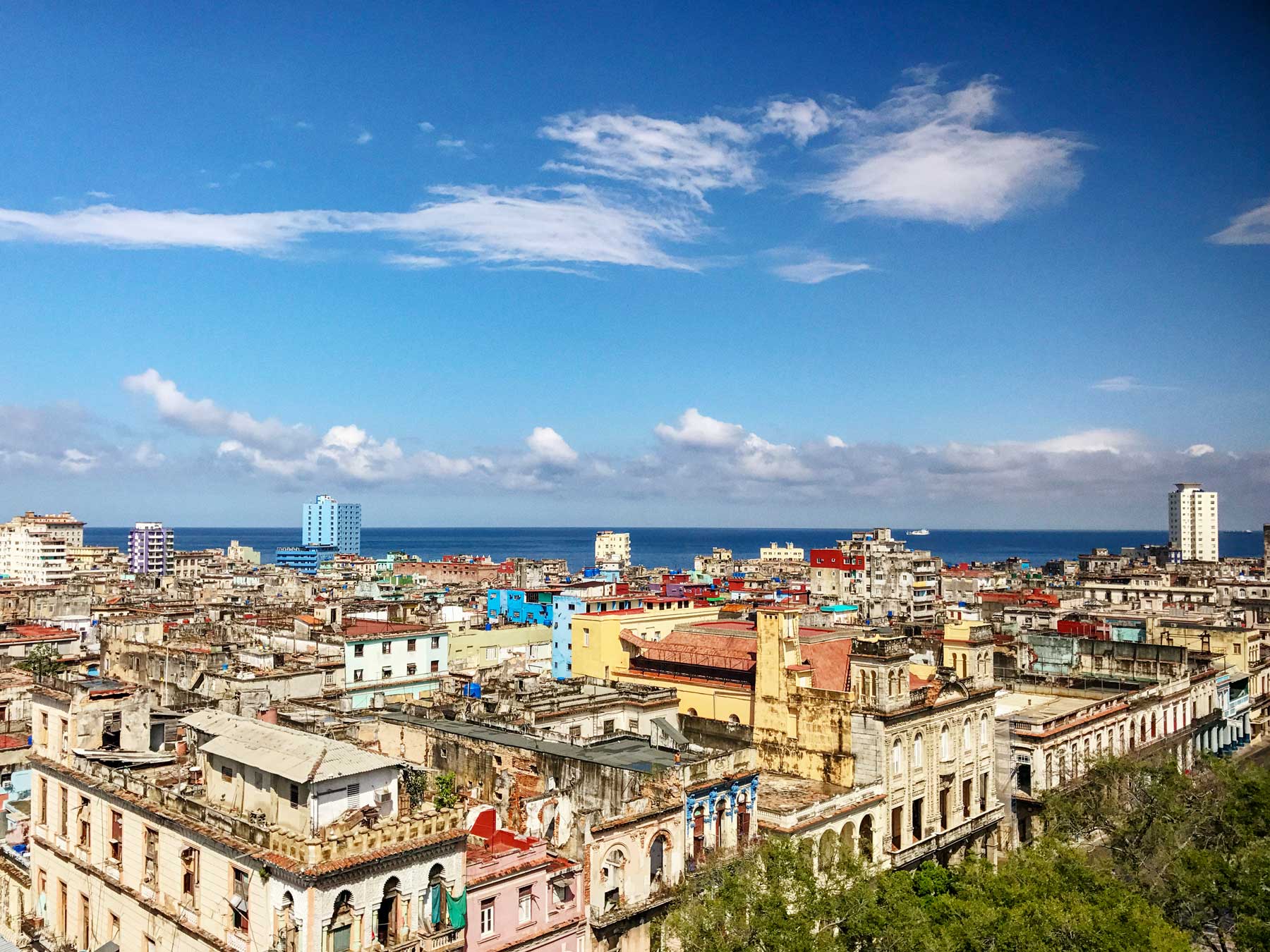
→ iPhone 7 Processed with Pic Tap Go
Tip 3
Where there is Light
Silhouettes, shadows, lens flare, reflections and the golden hour- do these terms sound familiar? Windows and open doors give of beautiful diffused light. Notice the beautiful handcrafted tile floor here in the Ambos Mundos Hotel, located in the heart of Havana (“The Ernest Hemingway Hotel”).
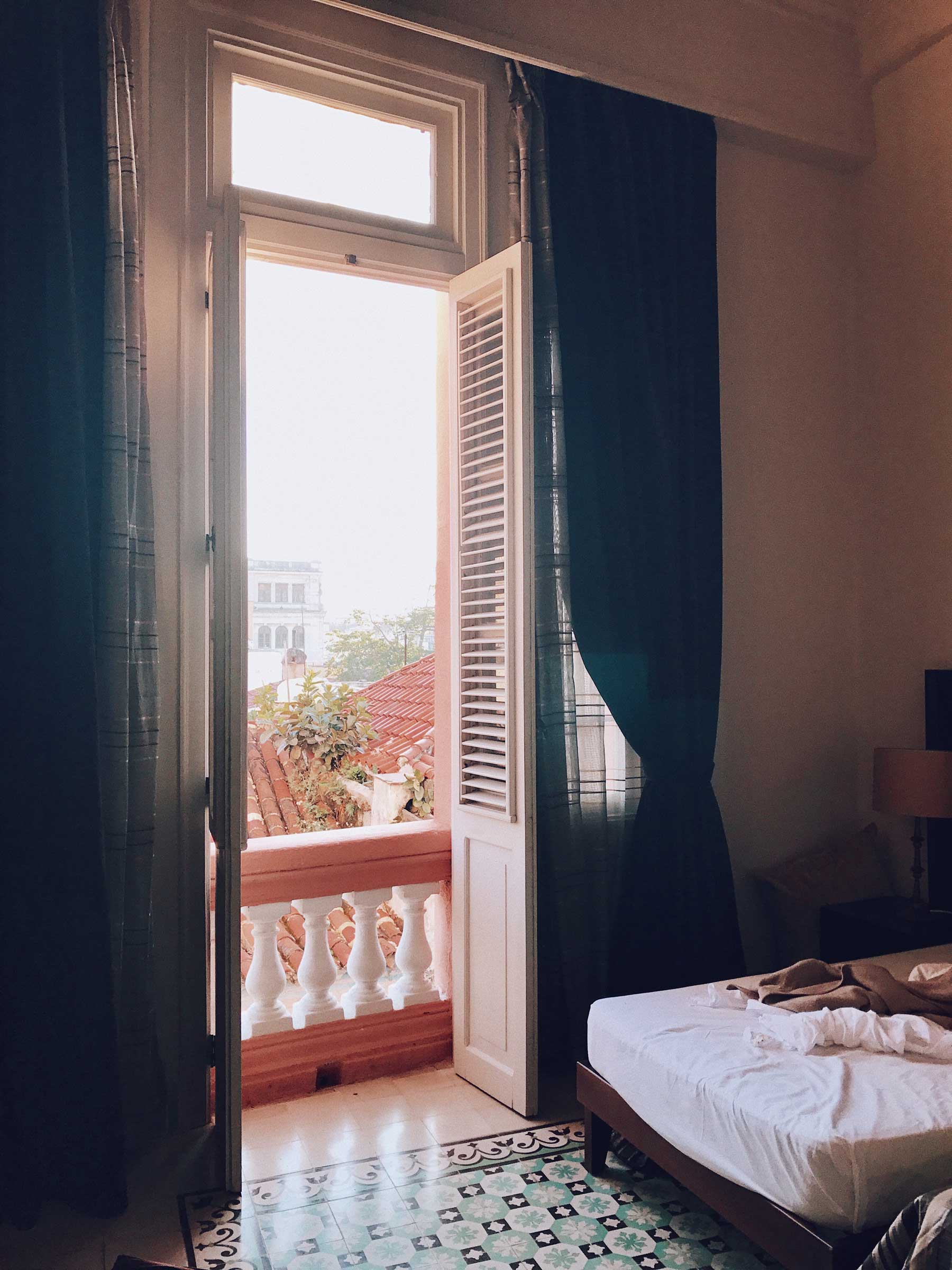
→ iPhone 7 Processed with VSCO c4 preset
Tip 4
Look Up and Down
There are so many fine details and history in Cuba. Look up and down and capture the ornate facets of these buildings. Use the selfie side of your phone to shoot a level view of any ceiling.
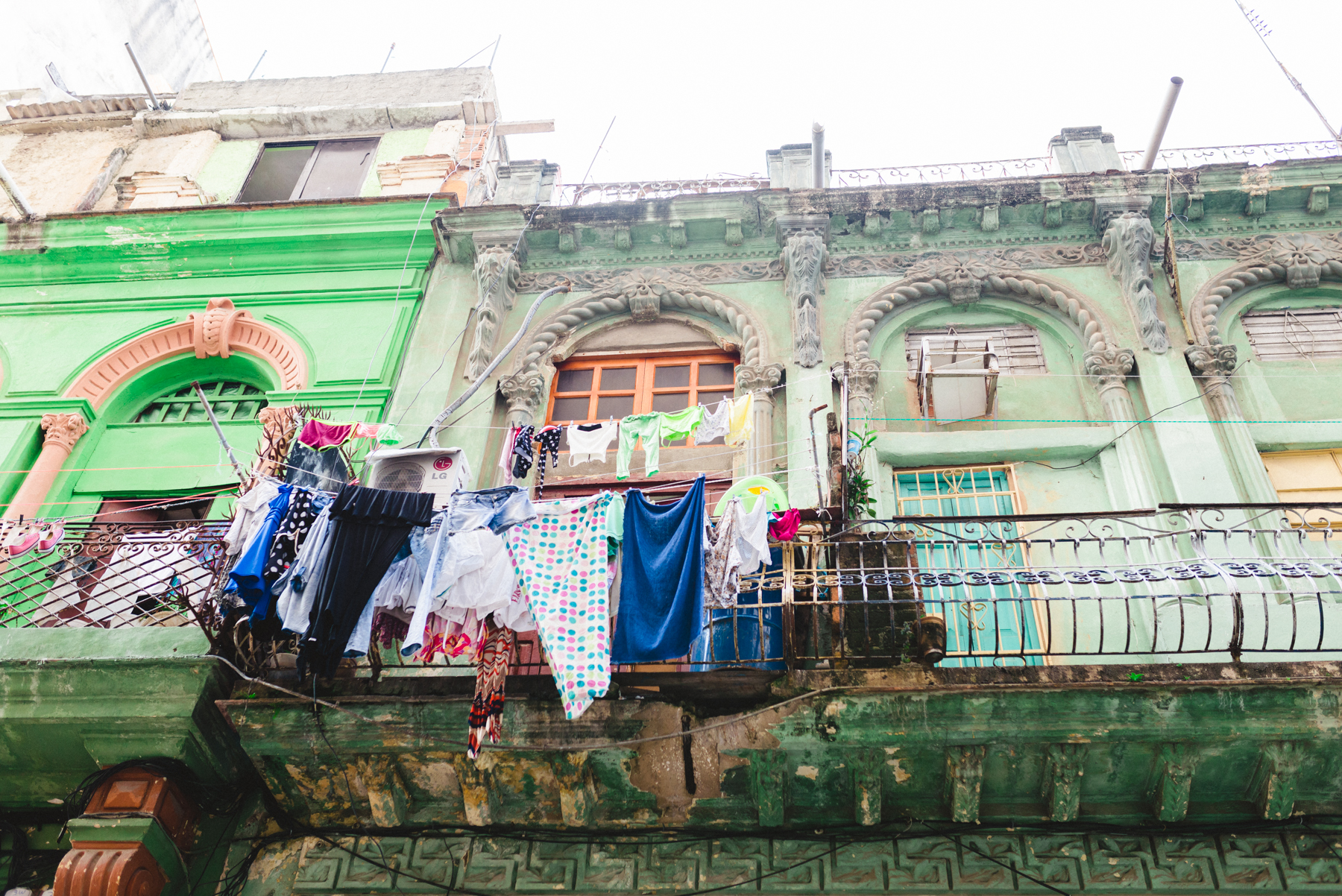
→ iPhone 7 Processed with VSCO a6 preset
Tip 5
Use Signs to Tell the Story
This isn’t just a fruit cart in the streets of Havana. When traveling, I take photos of signs, menu’s, maps, and street carts like this one that display bright art written in Spanish and pricing in the Cuban peso. What will this photo mean 20 years from now? Will the peso go up? Will Cuba be free from communism? We don’t know, but I’ll have this photo to tell my story of when I visited in 2017. I call these types of photos, information shots. They’re fundamental for documenting the story in my travel albums. A picture can say 1,000 words, and sometimes that’s all you need.
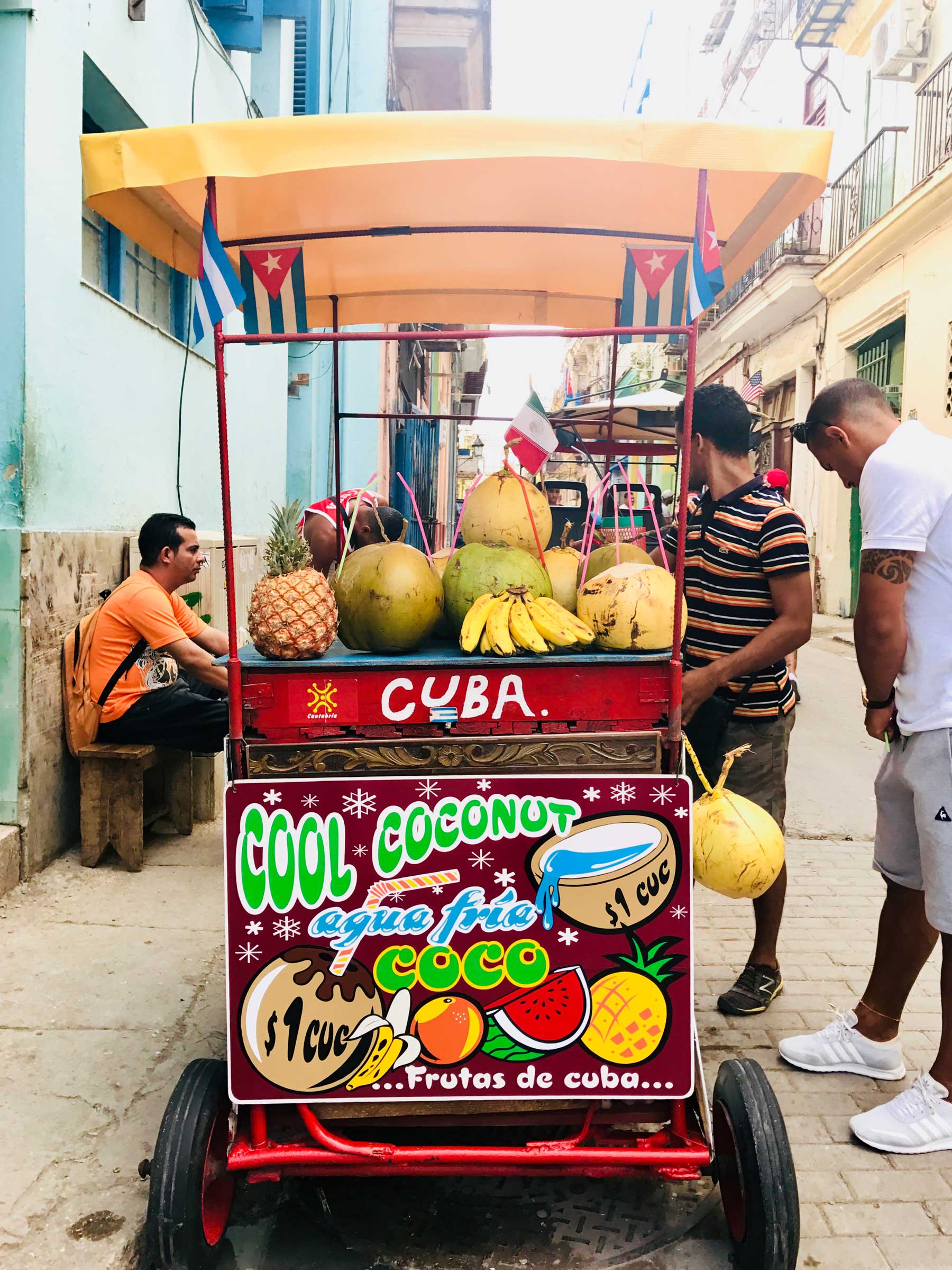
→ iPhone 7 Processed with native camera Vivid preset
Tip 6
Interview Locals
Fake News is a thing and I’m here to tell you, I learned everything about Cuba by speaking to the locals. Juan not only told us about the water and food he’s rationed, he took us to the warehouse (store) he goes to pick up his rations. I wasn’t able to take a photo there, the city is filled with camera’s and the communist government is always watching. Juan keeps his wife and daughters close to him in his wallet, they made it to Miami and he hasn’t them since. Juan’s dream is to come to the United States. His story inspires me. I always want to remember Juan. I am not able to show his face as he fears the Cuban government will punish him for “talking”. I do have his contact information that I keep in my Cuba travel album and will find him again someday.
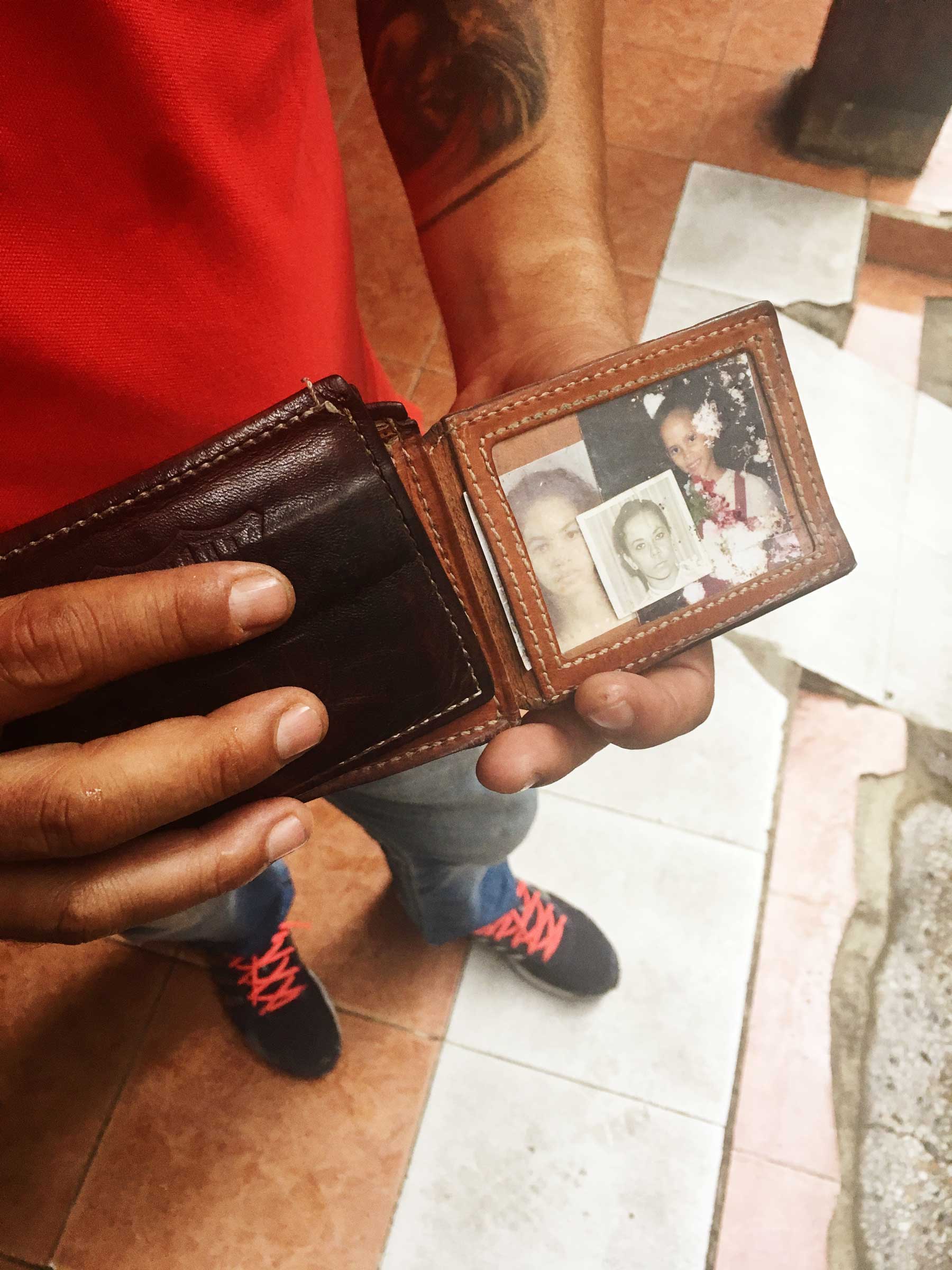
→ iPhone 7 Auto Processed with native tools
Tip 7
Angles
I turned to walk down a street, this yellow bicycle with it’s bright yellow taxi sign was just begging for it’s picture to be taken. I bent down just a tiny bit to add more emphasis to that the front tire and angled it to keep the bright turquoise car in the background. I love these two colors together! Shooting up from a lower angle adds focus to the front tire. Look for opportunities to change your perspective or a different vantage point when taking photos. Also, pay attention to what’s going on in the background. Move your body and your camera to change the angle and hide distracting elements if necessary.

A flip through of my travel photo album


